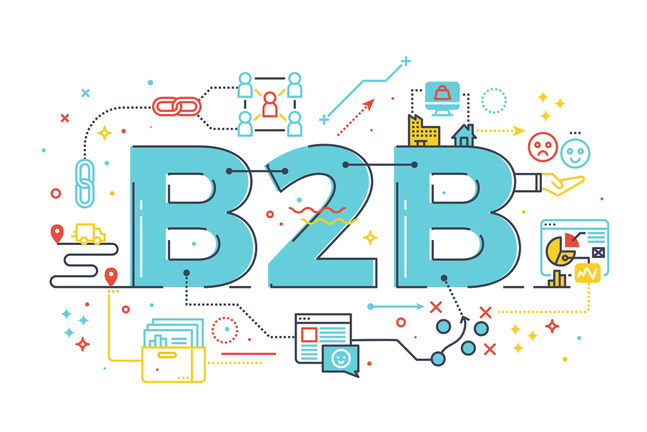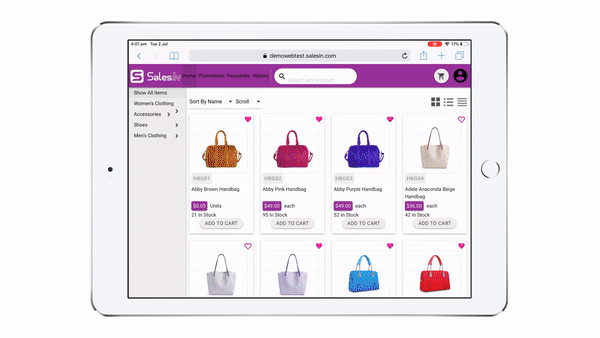E-Commerce
B2B Ecommerce 101: Everything You Need To Get Started

Have you ever heard of the term B2B ecommerce and wondered what all the hype was about? You’ve definitely heard that if you’re an online business owner, it could benefit you tremendously. So now your curiosity to find out more has been piqued but the big question stands- where do you start? You start by reading through this article where Mapletree Media is giving you the 101 on B2B ecommerce.
Contents
What Is B2B Ecommerce?

Business-to-business eCommerce is a type of electronic commerce in which the consumer is generally not the final end-user of the product. Instead, the B2B sale is between an organization that handles business-to-business transactions such as manufacturers, wholesalers, distributors and suppliers or middlemen.
Additionally, B2B ecommerce are essentially companies that use eCommerce technology to sell directly to other businesses. This is done either individually or in mass bulk. This enables smaller businesses without the infrastructure of major retail chains to access a global audience with a cost-effective and simple-to-use solution.

As a result, rather than investing heavily in expensive inventory or real estate, company owners may establish their own websites in minutes. This is possible with internet tools to assist in selling directly to prospective consumers through their online store.
Types Of B2B Ecommerce
1. B2B2C
A B2B2C model is a business-to-business-to-consumer method to value chain or supply chain analysis. It’s a shift from traditional B2B (business-to-business) to consumer-to-consumer (C2C) eCommerce. Therefore, products are acquired directly from producers or wholesalers in this approach, with no middlemen such as retailers.
In contrast, in B2C eCommerce, a merchant or a service such as an online shopping cart provider acts as a middleman between the business consumers and the consumers. In many B2B2C ecommerce arrangements, the customer is aware that the product is being delivered by a company other than the one from whom it was purchased.
2. Wholesale
Wholesale enables business owners to purchase items in large quantities at a reduced cost and then resell them at retail prices. In many sectors, it is a significant type of B2B. The large purchases made by wholesalers help both business owners and consumers.
As a result, businesses are able to pass on savings costs to their customers, while consumers benefit from a percentage discount on popular products. Retail, food service, construction, and medical are just a few of the businesses that use wholesale B2B models.
3. Manufacturers
Many manufacturers are shifting their B2B purchasing online for the same reason they shifted their buying to eCommerce retailers: the online experience. This is due to the ease of comparison shopping and delivery options, and the convenience in managing inventory all make for a better business decision.
Moreover, they use parts and raw materials in conjunction with physical labour and machinery to create completed items on a bigger scale. The final items are sold to other manufacturers or distributors in a B2B business. As these buyers continue to shift their buying patterns and increase their use of eCommerce platforms, manufacturers will be forced to adapt as well.
4. Distributors
Distributors are in charge of growing sales through a variety of methods. This includes brand recognition, the development of new distribution channels and the establishment of connections with potential customers. These professionals work with producers to ensure that their products are appropriately prepared for launching into an eCommerce shop.
Therefore, as an ecommerce owner or seller, you need to know who will be handling your items once they’ve been placed on the site and that’s where distributors come in. As a result, look for distributors who can give full-service assistance by handling all elements of transporting goods. This can be from manufacturer to storefront with ease when selecting the correct one for your business.
What You Can Gain From Using A B2B Ecommerce Platform
1. You start selling more to existing customers
In addition to providing a personal experience, eCommerce allows you to cross-sell and up-sell based on the most popular products that shoppers have bought. This is accomplished through the use of automated marketing campaigns.
It also allows you to make suggestions based on the shopper’s prior purchases or even offer a one-time recommendation at the point of sale. Thus, this will increase the amount of traffic to your shop from returning consumers who are eager to buy! This builds trust in your brand and increases sales.
2. Better control over suppliers and customers
B2B eCommerce allows you to keep track of both your suppliers and your customers. Therefore, the more efficient your company is, the more likely it is to succeed. Additionally, you’ll be able to track client behaviour and usage in real-time with an online shopping platform. This ensures that you always have a steady supply of data coming your way.
With that, this enables you to produce better items for your consumers while also increasing your company’s efficiency. It’s a win-win situation for everyone: providers get improved efficiency and better data access while buyers can expect more tailored purchasing experiences.
3. Reach new customers
The world of B2B eCommerce is expanding at a fast pace. With more listings appearing online every day, reaching new consumers is easier than ever. Therefore, as a business owner, you have the ability to contact a wide spectrum of consumers, many of whom use digital marketing methods to achieve their objectives.
In addition, you may use digital marketing tactics to expand your reach by getting online. This is because they’re used to utilising it for other parts of their life. Thus, your potential consumers will not only prefer to purchase online but will demand it.
4. Better data analytics
As an eCommerce business owner, you are most likely aware that online analytics provides some key insights into your business. You may develop a strong digital marketing strategy to improve sales by combining data with additional technologies like search engine optimization (SEO). Therefore, this is a valuable tool that aids in decision-making; it may also reveal what isn’t working and how we can improve our website or sales procedures.
The goal of a superior data analytics solution is to help you improve your B2B eCommerce business. As a result, it will offer you insightful statistics that will assist you in gathering the knowledge you need to make the best decisions possible.
